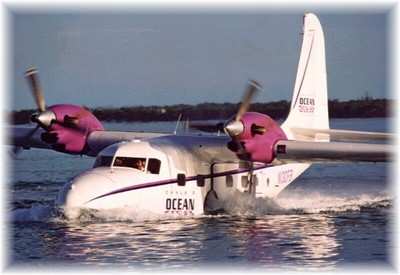Wed, Apr 18, 2007
Rosenker Says Recent Accidents Share Common Themes
 In a speech before the Aging
Aircraft Conference now underway in Palm Springs, CA, National
Transportation Safety Board Chairman Mark V. Rosenker reiterated
the agency's concern with aging aircraft.
In a speech before the Aging
Aircraft Conference now underway in Palm Springs, CA, National
Transportation Safety Board Chairman Mark V. Rosenker reiterated
the agency's concern with aging aircraft.
"We have investigated several accidents and incidents that have
highlighted the safety implications resulting from aircraft aging
and these accidents repeatedly demonstrate the importance of
effective airworthiness programs throughout the service life of
aircraft," Rosenker said. "With the proper maintenance program,
these accidents involving aging aircraft could have been
prevented."
Rosenker stressed there is no single criterion that defines an
aircraft as 'old'. The age of an aircraft depends on a number of
factors that include, but are not limited to the chronological age,
number of flight cycles, number of flight hours and the environment
in which the aircraft operates. Furthermore, determining the
overall health of an aircraft is complicated by the fact that
individual aircraft components can age differently in different
portions of the same aircraft and by the nature of certain aging
mechanisms, such as fatigue.
Some common themes identified in each of these accidents
involving aging aircraft have been:
- Unknown service histories as is the case with military surplus
aircraft
- Poor fatigue design details... The regulations did not require
fatigue analysis for these airplanes
- Most older airplanes have no inspection program
- The continued operation of airplanes beyond their useful
lifespan.
"The Safety Board feels that the continued commercial operation
of these 50 to 60 year old airplanes that were not certified to the
standards of today's modern airplanes is not safe -- all passengers
should have the same level of safety," Rosenker said.

"The FAA should require records reviews, aging airplane
inspections, and supplemental inspections for all airplanes
operated under Part's 121, 129 and 135 regardless of the year they
were type certificated, the number of passengers they carry or
their maximum payload, and has issued related safety
recommendations to that effect."
More News
Airport Marking Aids Markings used on runway and taxiway surfaces to identify a specific runway, a runway threshold, a centerline, a hold line, etc. A runway should be marked in ac>[...]
"It is extremely difficult, if not impossible, for manned aircraft to see a drone while conducting crop-enhancing and other aerial applications at low altitudes and high speeds. We>[...]
Aero Linx: The Skyhawk Association The Skyhawk Association is a non-profit organization founded by former Skyhawk Pilots which is open to anyone with an affinity for the A-4 Skyhaw>[...]
“The T-54A benefits from an active Beechcraft King Air assembly line in Wichita, Kansas, where all required METS avionics and interior modifications are installed on the line>[...]
Aero Linx: Aerostar Owners Association The Association offers the Aerostar Owner a unique opportunity to tap an invaluable source of information concerning the care and feeding of >[...]
 ANN's Daily Aero-Term (04.28.24): Airport Marking Aids
ANN's Daily Aero-Term (04.28.24): Airport Marking Aids Aero-News: Quote of the Day (04.28.24)
Aero-News: Quote of the Day (04.28.24) ANN's Daily Aero-Linx (04.28.24)
ANN's Daily Aero-Linx (04.28.24) Aero-News: Quote of the Day (04.29.24)
Aero-News: Quote of the Day (04.29.24) ANN's Daily Aero-Linx (04.29.24)
ANN's Daily Aero-Linx (04.29.24)




